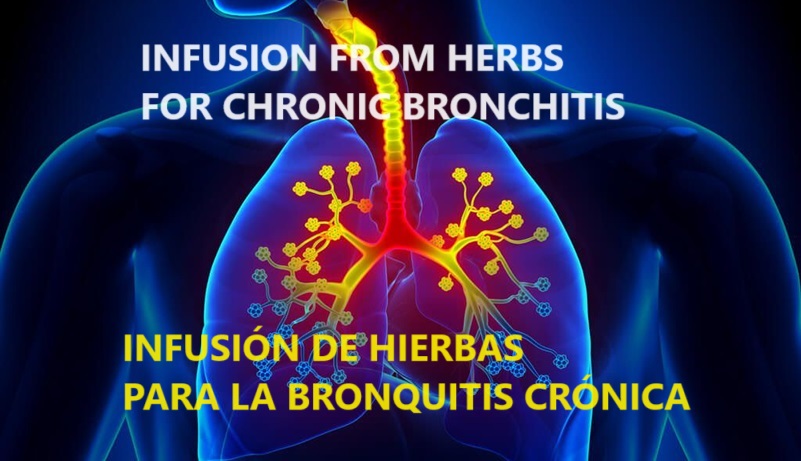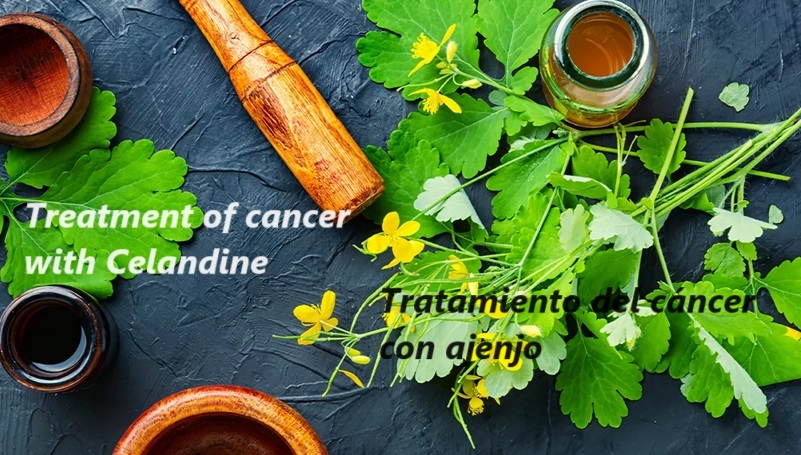Herbs for Cough Relief in Bronchitis. Prevention of Bronchitis with Inhalations and Herbal Teas
The Benefits of Herbs in Treating Bronchitis
Bronchitis treatment requires a comprehensive approach that not only aims to eliminate symptoms but also to address the root cause of inflammation. Including medicinal herbs and plants with expectorant, anti-inflammatory, and antiseptic properties can significantly accelerate the healing process. The use of inhalations, herbal teas, and decoctions helps to relieve coughing, promote mucus expulsion, and reduce inflammation in the bronchi. This approach not only improves the patient’s condition but also reduces the risk of complications associated with bronchitis.
This article discusses which medicinal herbs and preventive methods can be used for effective treatment and prevention of bronchitis, taking into account the importance of an integrated approach to the therapy of this common disease.
The Benefits of Medicinal Herbs in Bronchitis Treatment
The use of medicinal herbs in bronchitis treatment is an ancient and time-tested method. Herbs can have expectorant, anti-inflammatory, antiseptic, and soothing effects on the respiratory tract. They help reduce inflammation, ease coughing, promote faster mucus discharge, and strengthen the immune system. Taking herbal infusions and decoctions, as well as performing inhalations with them, can be an effective complement to traditional bronchitis therapy. These remedies can help shorten the duration of the illness and improve the patient’s general well-being.
Top 5 Best Herbs for Bronchitis
Coltsfoot: A Natural Remedy for Cough
Coltsfoot is a valuable medicinal plant widely known for its expectorant and anti-inflammatory properties. These characteristics have made it one of the most popular natural remedies for relieving cough and treating bronchitis. The leaves of coltsfoot contain beneficial substances such as mucilage, flavonoids, and essential oils, which help to thin mucus and make expectoration easier, reduce inflammation in the respiratory tract, and promote the healing of the mucous membranes.
Using coltsfoot as a decoction, infusion, or tea helps not only in bronchitis but also in other respiratory diseases accompanied by cough and airway inflammation. Its mild action makes it a universal remedy for both adults and children, providing effective and safe treatment.
Thanks to its healing properties, coltsfoot is widely used not only in folk medicine but also as an ingredient in many pharmaceutical preparations for the treatment of cough and bronchitis. To obtain the best results, it is recommended to use high-quality products from trusted sources.
Plantain: How It Helps with Bronchitis
Plantain is a medicinal plant known for its strong antiseptic, anti-inflammatory, and healing properties. In the treatment of bronchitis, plantain acts as an effective agent that helps reduce inflammation in the respiratory tract, facilitates mucus discharge, and accelerates the healing process of the bronchial mucosa.
The active components of plantain, including flavonoids, saponins, and polysaccharides, provide its healing properties. They act not only locally, reducing inflammation and promoting tissue regeneration, but also have a general strengthening effect, increasing the body’s resistance to infections.
Using plantain syrup in complex therapy for bronchitis allows for noticeable improvement in the patient’s condition, reducing cough intensity, easing breathing, and accelerating recovery. However, before starting use, it is important to consult a doctor to ensure there are no contraindications or possible allergic reactions to the plant’s components.
Sage: Antiseptic and Anti-Inflammatory Properties
Sage is a medicinal herb highly valued for its antiseptic and anti-inflammatory properties. These qualities make it particularly useful in the treatment of various respiratory diseases, including bronchitis. Sage leaves contain essential oils, terpenoids, flavonoids, and other active substances that contribute to the destruction of bacteria and viruses and to reducing inflammation in the respiratory tract.
Sage can be used in different forms, including decoctions and inhalations, making its use versatile. Using sage in the treatment of bronchitis helps relieve cough, facilitates mucus discharge, and reduces inflammation in the bronchi.
Inhalations with sage are one of the most effective methods of using this plant in respiratory diseases, as they help deliver the healing components directly to the airways, accelerating recovery. Sage teas and decoctions can also be beneficial for internal use, strengthening the body and improving resistance to infections.
It is important to remember that despite its many benefits, recommended dosages must be followed, and it is advisable to consult a doctor before starting treatment, especially for people with chronic illnesses or allergies.
Thyme: Soothing Effect on the Bronchi
Thyme, also known as wild thyme, is one of the most valuable medicinal plants thanks to its powerful antimicrobial and soothing effects on the bronchi. The essential oils and other active compounds in thyme help to ease breathing, reduce inflammation, and accelerate recovery from bronchitis.
Thyme can be used in various forms, including decoctions, infusions, and inhalations. These methods of use allow the full healing properties of the plant to be utilized, making it an effective remedy for cough and other symptoms of bronchitis.
The anti-inflammatory and antiseptic properties of thyme help fight infections in the respiratory tract and facilitate mucus elimination. Thymol, one of the main components of thyme essential oil, has strong antimicrobial action, making it especially useful in treating bacterial and viral respiratory infections.
Using thyme as an additional agent in the complex therapy of chronic bronchitis helps improve the patient’s condition and speed up recovery. However, it is important to consult a doctor before starting treatment to avoid contraindications or allergic reactions.
Eucalyptus: Effectiveness in Treating Respiratory Diseases
Eucalyptus is well known for its strong antiseptic and anti-inflammatory properties, which make it suitable for treating a wide range of respiratory diseases, including bronchitis. Eucalyptus leaves contain essential oil, whose main component is eucalyptol (cineole), known for its expectorant and antimicrobial effects.
Eucalyptus can be used to prepare decoctions, infusions, and inhalations, making it a versatile remedy for respiratory infections. Inhalations with eucalyptus help thin and eliminate mucus, relieve breathing, and reduce inflammation in the bronchi.
Using eucalyptus in the treatment of bronchitis and other respiratory diseases helps accelerate recovery and significantly improve the condition of the respiratory tract. Eucalyptus is effective not only in bacterial and viral infections but also in allergic reactions, as it helps reduce swelling of the mucous membranes.
Despite its high effectiveness, it is important to consult a doctor before using eucalyptus, especially for those with sensitivities or allergies. Recommended doses should always be followed to achieve the best therapeutic effect and avoid side effects.
Using Herbal Blends for a Comprehensive Treatment Approach
The use of herbal blends is one of the key elements of a comprehensive approach to treating and preventing respiratory diseases, including bronchitis. This method allows the combination of healing properties of different plants, enhancing the therapeutic effect and promoting faster recovery.
Chest Mixture No. 1
Chest Mixture No. 1 is usually recommended to relieve symptoms of acute and chronic respiratory diseases. The combination of herbs in this mixture helps reduce inflammation, has an expectorant effect, and alleviates coughing.
Chest Mixture No. 2
Chest Mixture No. 2 is also intended for the treatment of respiratory diseases but may differ in composition, providing alternative combinations of herbs to achieve the best therapeutic results.
Using herbal mixtures allows for simultaneous action on different aspects of the disease: relieving symptoms, promoting mucosal recovery, and strengthening the immune system. This approach increases the chances of a quick and effective recovery and can also be used as prevention for respiratory diseases.
Before starting to use herbal mixtures, it is recommended to consult a doctor to avoid possible contraindications and ensure that the selected mixture is appropriate for the specific case.
Prevention of Bronchitis with Inhalations and Herbal Teas
Prevention of bronchitis and other respiratory diseases includes a series of measures aimed at strengthening the immune system, moisturizing, and cleansing the airways. Among these, inhalations and herbal teas occupy a special place.
Inhalations
Inhalations with essential oils (such as eucalyptus, mint, or thyme) or with herbal decoctions have a pronounced antiseptic, anti-inflammatory, and expectorant effect. They help moisturize the mucous membranes of the respiratory tract, thin and expel mucus, and destroy pathogenic microorganisms.
Performing inhalations regularly during the cold season or in periods of increased infection risk helps reduce the likelihood of respiratory infections, including bronchitis. Special inhalers or nebulizers can be used to ensure deep delivery of the healing components into the airways.
Herbal Tea
Drinking herbal tea is also an effective means of preventing bronchitis. Herbs such as sage, plantain, coltsfoot, thyme, and eucalyptus are rich in flavonoids, saponins, and other substances that strengthen the immune system and have expectorant and antiseptic properties.
Regular consumption of herbal teas can help improve overall health, increase resistance to infections, and reduce the risk of inflammatory processes in the respiratory tract. For prevention, it is advisable to choose teas that combine several herbs to enhance their positive effects on the body.
It is important to remember that bronchitis prevention requires a holistic approach, which includes a healthy lifestyle, proper nutrition, quitting smoking, and regular physical activity. Inhalations and herbal teas are only part of a general strategy for strengthening respiratory health.
In conclusion, the use of medicinal herbs in the treatment and prevention of bronchitis plays an important role in maintaining respiratory health. Herbs such as coltsfoot, plantain, sage, thyme, and eucalyptus have strong expectorant, anti-inflammatory, and antiseptic properties that help alleviate bronchitis symptoms, accelerate recovery, and strengthen the immune system. A comprehensive approach that includes herbal blends, inhalations, and teas can significantly reduce the risk of respiratory diseases and improve overall health. It is important to consult a doctor before using any medicinal herbs to avoid possible side effects and achieve the best results in the treatment and prevention of bronchitis.
References
Adams, J.P., & Murphy, P.E. (2020). “Herbal Medicine for Cough: a Systematic Review and Meta-Analysis of Randomized Controlled Trials.” Journal of Herbal Medicine, 20(3), 100–112.
Brown, D., & Jurgens, T.M. (2018). “Antimicrobial Properties of Eucalyptus Oil: An Overview.” Phytotherapy Research, 32(10), 1243–1253.
Clark, A.E., & Arnold, E. (2019). “Thyme (Thymus vulgaris L.) and Its Therapeutic Potential for Respiratory Conditions.” Journal of Medicinal Plants Research, 13(9), 183–195.
Gupta, S., Allen-Vercoe, E., & Patel, R. (2021). “Efficacy of Plantain (Plantago major) in Chronic Respiratory Conditions: An Evidence-Based Review.” Alternative Therapies in Health and Medicine, 27(4), 58–65.
Lee, J.B., & Smith, T. (2017). “Sage (Salvia officinalis) for Respiratory Infections: A Systematic Review.” Herbal Medicine Journal, 9(1), 17–29.






